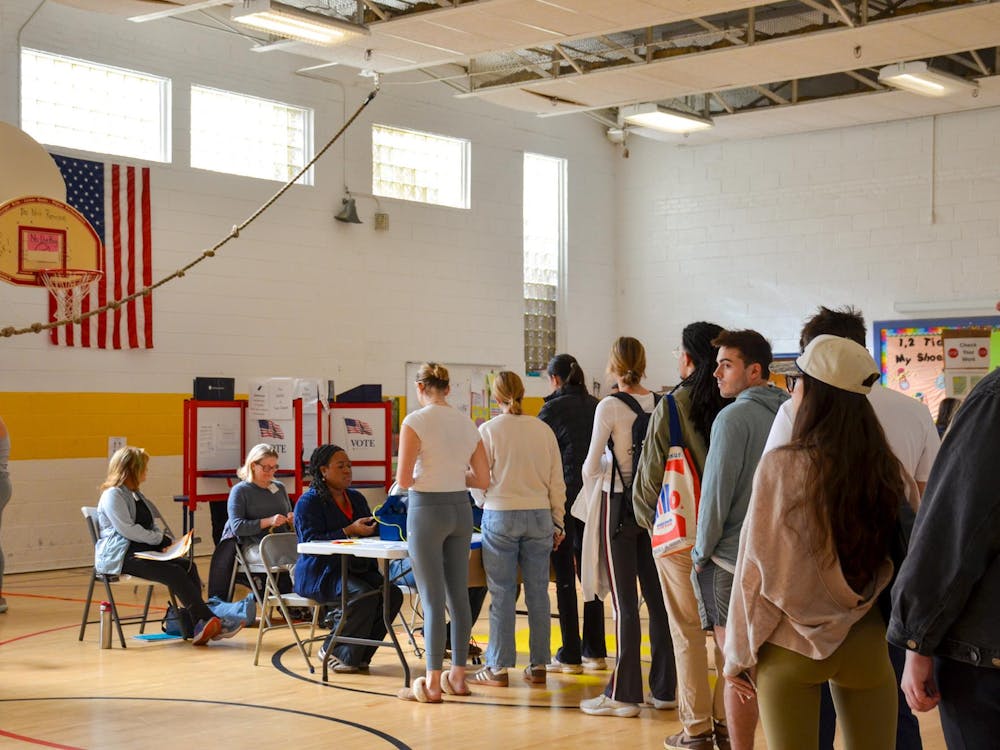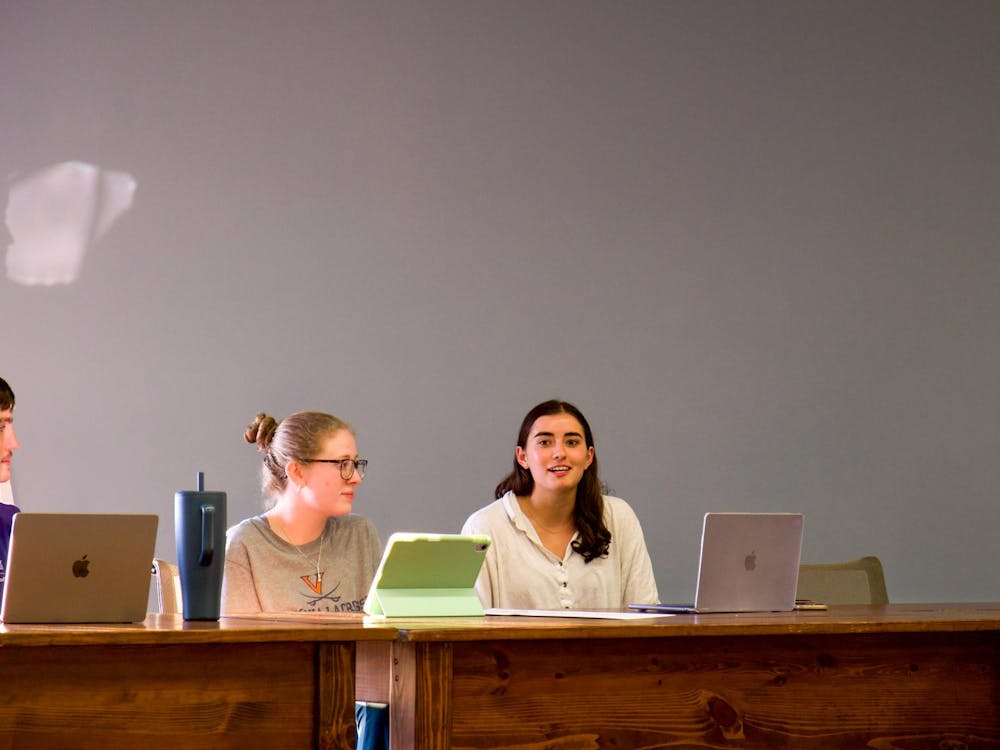The Board of Visitors recently approved an undergraduate in-state tuition increase of 9.9 percent and a 6.6-percent increase for out-of-state students for the 2008-09 school year in order to compensate for state budget cuts and support the funding needs of AccessUVa, according to Melody Bianchetto, assistant vice president for budget and financial planning.
A Virginia resident will now pay $7,498 for tuition, which includes educational and general fees, but excludes student activity and auxiliary fees. The total tuition and fees level will be $9,300. An out-of-state student, meanwhile, will pay $27,798 for tuition; tuition and fees total to $29,600.
The average total price for a first-year undergraduate student next year, including room and board, will be $17,318 for a Virginia resident and $37,618 for an out-of-state student.
The increases are consistent with the University's six-year financial plan submitted as part of the commonwealth's 2005 Restructuring Act, according to Colette Sheehy, vice president for management and budget. The six-year plan was most recently updated in October 2007 based on commonwealth assumptions that general fund money allocation to the University would increase $11 million for 2008-09, Sheehy said; however, commonwealth budget cuts decreased that amount to $4.5 million for the University in 2008-09.
Bianchetto said the University has one of the higher tuition prices of public schools nationwide but receives a relatively small amount of funding -- about $152 million in 2007-08 -- in comparison to other public schools.
"Tuition is very much tied to what you are getting from the state," she added.
While the University has the highest tuition rate for in-state public institutions in the commonwealth, Bianchetto said, it charges lower fees than most of these schools. Lower fees indicate a greater proportion of money spent goes toward instructional programs, Bianchetto said, noting the University's large size and successful athletic program contribute to the low fees.
Compared with the other schools listed by US News & World Report as the top 25, Bianchetto said the University has competitive prices, noting the University's tuition rate increase has been fairly consistent at about 10 percent for the past few years following the end of the commonwealth's mandated tuition freeze in the 1990s.
Future students will face lower rates of increases in tuition, Bianchetto said, as the University's current six-year plan anticipates the tuition rate will decrease to 5.5 percent in 2013-14.
With the goal of limiting tuition increases for in-state students, Lacey Putney, House of Delegates Appropriations Committee chair, said the Virginia General Assembly recently created the Tuition Moderation Incentive Fund. This fund, according to Sheehy, will give a onetime financial incentive to any Virginia public college or university that limits its in-state undergraduate tuition rate increase to 3 percent for operating purposes and 1 percent for financial aid in 2008-09. The University was eligible to receive $1.58 million from the fund if it had abided by the stipulations, Sheehy said; however, limiting tuition rate increases to 4 percent was not feasible for the University, especially when considering the fund money is a onetime contribution.
Putney said General Assembly members discussed various methods of limiting tuition increase rates after receiving complaints about the rising cost of tuition, also noting the Tuition Moderation Incentive Fund allows schools to maintain the authority that an absolute quota system would take away.
"We have tried to show concern for parents and taxpayers but also give deference to those who run institutions," Putney said, adding that he does not think the General Assembly should micromanage schools.
Although Putney said he has received positive feedback from constituents about the creation of the fund, he estimated about six Virginia schools will not participate in the 2008-09 year. He added that schools with tuition rate increases of over 4 percent in 2008-09 are still eligible to participate the following year.
Graduate students also will be paying more for tuition in the upcoming school year, Bianchetto said, with an increase of $777 for 2008-09. For Virginian graduate students, this tuition increase is about 8 percent, for a total tuition and fees cost of $12,140. For non-Virginian graduate students, the increase is about 4 percent, for a total tuition and fees cost of $22,140. A tuition difference of $10,000 between Virginian and non-Virginian students is maintained.
This gap in tuition is also maintained for Medical students, Bianchetto added. Tuition increased $1,345 -- a 4.3-percent increase to $32,650 for Virginians and a 3.3-percent increase to $42,650 for out-of-state students.
Meanwhile, Law School tuition increased by $3,300 for 2008-09, Bianchetto said. Virginians will see an increase of 9.9 percent to $36,800, while non-Virginians face an 8.6-percent increase to $41,800. Darden students will pay $3,000 more in tuition next year -- an 8-percent increase for Virginians to $40,500 and a 7.1-percent increase to $45,500 for out-of-state students.






